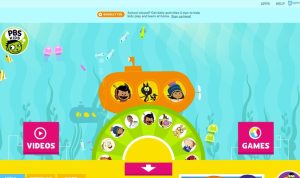Best Apps to Prepare for the SAT Exam offer students a gateway to academic success by harnessing technology to enhance their study experience. With the increasing competitiveness of college admissions, the right tools can make all the difference in achieving a high SAT score. These applications provide personalized study plans, practice tests, and interactive learning modules designed to address individual strengths and weaknesses, ensuring that students are well-prepared for the challenges ahead.
As students navigate their preparation journey, these apps not only offer essential resources but also foster a supportive learning environment that promotes engagement and motivation. By utilizing the latest advancements in educational technology, learners can access a wealth of information at their fingertips, making studying more efficient and effective.
In the contemporary landscape of digital media, the omnipresence of technology has fundamentally transformed the manner in which individuals interact with information. The advent of the internet, followed by the rise of social media platforms, has not only democratized access to knowledge but has also revolutionized communication dynamics across the globe. This article seeks to explore the multifaceted implications of these technological advancements on society, particularly focusing on aspects such as information dissemination, social interaction, and the emergence of digital identities.The proliferation of the internet has enabled an unprecedented volume of information to be generated, shared, and consumed at an astonishing pace.
According to recent studies, as of 2023, over 4.9 billion individuals are active internet users, reflecting a staggering increase from previous years. This growth has facilitated the rapid dissemination of news and information, empowering individuals with the ability to access a diverse range of viewpoints and narratives. However, this abundance of information has also led to significant challenges, including the rise of misinformation and the difficulty in discerning credible sources.
The need for digital literacy has never been more critical, as consumers of information must navigate a complex landscape filled with competing narratives and biases.Social media platforms, such as Facebook, Twitter, Instagram, and TikTok, have emerged as the dominant channels through which information is shared and consumed. These platforms allow users to interact with content in real-time, fostering a culture of immediacy and engagement.
The interactive nature of social media enables individuals to not only consume information but also contribute to it, thereby blurring the lines between producer and consumer. This shift has significant implications for traditional media outlets, which now face increased competition from user-generated content. As a result, traditional journalists are compelled to adapt to new storytelling methods that resonate with digital audiences, often prioritizing speed over depth in their reporting.Moreover, the impact of social media extends beyond information dissemination; it has transformed the nature of social interactions.
Interpersonal communication has shifted from face-to-face interactions to digital exchanges, fundamentally altering the way relationships are formed and maintained. While social media facilitates connectivity among individuals across geographic boundaries, it also raises concerns regarding the quality and authenticity of these interactions. Studies have shown that the rise of online communication is often associated with feelings of isolation and loneliness, as users may prioritize virtual interactions over real-world connections.As individuals engage with social media, they also curate digital identities that reflect their interests, values, and beliefs.
This phenomenon raises questions about authenticity and self-representation in the digital age. The pressure to maintain a polished online persona can lead individuals to present an idealized version of themselves, often resulting in a disconnect between their online and offline identities. Furthermore, the concept of “likes” and “followers” has introduced a new currency of social validation, where individuals often measure their self-worth based on their online presence.

This trend can have detrimental effects on mental health, particularly among younger demographics who are more susceptible to the pressures of social media.Additionally, the rise of influencer culture has transformed marketing and advertising practices. Influencers, who typically build their followings through authentic engagement with their audiences, hold significant sway over consumer behavior. Brands increasingly leverage influencer partnerships to reach target demographics, capitalizing on the trust and relatability that influencers cultivate with their followers.
This shift has disrupted traditional advertising models, prompting businesses to rethink their strategies in order to remain relevant in a digital-first world.The interplay between technology and society also raises ethical considerations, particularly regarding privacy and data security. The collection and analysis of user data by tech companies have sparked debates about consent, surveillance, and the commodification of personal information. As users navigate digital spaces, they often unwittingly relinquish control over their data, raising concerns about the potential for misuse.
In response, there has been a growing demand for transparency and accountability from technology companies, as well as calls for stronger regulations to protect user privacy.Furthermore, the impact of technology extends to education, where digital tools are reshaping learning environments. The COVID-19 pandemic accelerated the adoption of online learning platforms, highlighting the potential of technology to enhance educational accessibility. However, it also exposed significant disparities in access to technology and internet connectivity, exacerbating existing inequalities in education.
As educational institutions continue to integrate technology into their curricula, it is crucial to address these disparities to ensure equitable access to quality education for all students.In conclusion, the integration of technology into everyday life presents both opportunities and challenges for society. The ability to access and share information has empowered individuals, fostering a more informed citizenry. However, the rise of misinformation, the challenges of maintaining authentic social connections, and the ethical implications of data privacy underscore the need for critical engagement with technology.
As society continues to navigate these complexities, it is imperative to foster digital literacy, promote responsible online behavior, and advocate for policies that protect user rights. Ultimately, the successful integration of technology into society will depend on our collective ability to harness its potential while mitigating its risks.





